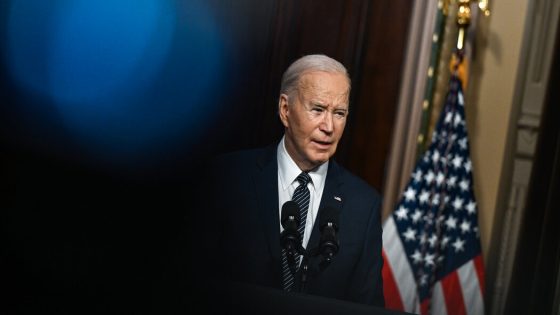President Biden will announce a new effort on Monday to reduce or eliminate student loan debt for millions of borrowers, an election-year attempt to revive his goal of providing large-scale relief for Americans struggling to pay off their college loans, a person familiar with the plan said Friday.
Mr. Biden is expected to preview new regulations by the Education Department targeting millions of borrowers, including those whose loans have ballooned because of accrued interest and others who can demonstrate financial hardship impeding repayment, according to the person, who spoke on the condition of anonymity because the regulations have not yet been formally proposed by the department.
The proposed regulations are set to be published in the coming days. Mr. Biden will speak about the effort during a visit to Wisconsin on Monday, which will coincide with a speech on student loans by Vice President Kamala Harris in Philadelphia.
The push is a recognition by Mr. Biden and his allies of the disappointment felt by his supporters — especially young voters — when the president’s first attempt to wipe out student debt was blocked by the Supreme Court last summer. The court said that the government exceeded its authority under federal law when it attempted to cancel up to $400 billion in student loans.
Since then, the Biden administration has used existing laws to provide debt relief to smaller pockets of borrowers. Monday’s announcement is expected to eventually reach a larger group, though officials said it would still be more targeted than the across-the-board relief that the Supreme Court already struck down.
Once the proposed regulations are officially published in the Federal Register, it will still be months before they can go into effect because of a required public comment period. Biden administration officials expect that the new rules are likely to be challenged in court, which could further delay any reductions in debt.
Officials have said they believe the new proposed regulations would be more likely to survive legal challenges because they are based on a different federal law and they are more targeted to people in specific situations. The president’s previous effort was based on the Heroes Act, which allows the education secretary to waive debt during an emergency; the current regulations would be authorized by the Higher Education Act.
Politically, the timing is critical for Mr. Biden as he battles former President Donald J. Trump for another term in the White House.
The president’s popularity among young people, a group that was critical to his 2020 victory, has dropped significantly in the past several years. A December poll conducted by The New York Times and Siena College found that Mr. Biden is trailing Mr. Trump among voters 18 to 29, which is a dramatic turnabout. In 2020, Mr. Biden won that group by 20 percentage points.
Officials at the White House and the Education Department declined to comment on the expected regulations, which were reported earlier by The Wall Street Journal.
But details about the proposed rules have been discussed and debated for months in a series of public hearings with stakeholders. Transcripts of those meetings and drafts of the proposed regulations provide a road map for the administration’s announcement.
On Feb. 22, the department released a draft of a regulation titled “Forgiveness due to likely impairment of borrower ability to repay or undue costs of collection.”
The proposed language in the regulation said that the U.S. education secretary could waive student debt when it was determined that “a borrower has experienced or is experiencing hardship related to such a loan such that the hardship is likely to impair the borrower’s ability to fully repay the federal government or the costs of enforcing the full amount of the debt are not justified by the expected benefits of continued collection of the entire debt.”
That regulation listed 17 factors to consider when assessing whether a borrower qualifies for the hardship waiver. Those include: household income and assets, student loan balance, total loan balance, age, disability, high cost burdens for essential expenses such as health care, and “any other indicators of hardship identified by the secretary.”
On Dec. 11, discussions about potential new regulations included a proposal to allow the education secretary to waive student debt when the total amount owed by a borrower exceeds the original principal on the loan because of accrued interest.
“The secretary may waive the lesser of $20,000 or the amount by which a borrower’s loans cumulatively have a total outstanding balance that exceeds the original principal balance of the loans,” said the proposed text for the regulation distributed at the meeting.
The actual regulations published are likely to differ, at least slightly, from the ones discussed in the public meetings, the person familiar with the discussions said. But Mr. Biden is expected to embrace help for those with financial hardship and those with high balances because of accumulated interest.
Source Agencies

